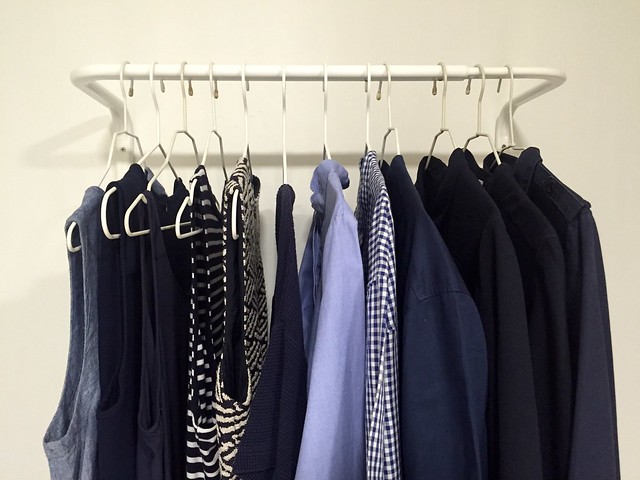dressing for pleasure

"The basis of this critique (and I hear it day after day from scornful men and some self-satisfied women) is that we have "certain unchanging and easily defined needs" - that having bought a pair of trousers you shouldn't need another pair until the first ones wear out and there's no reason to buy anything other than an identical garment...These arguments are based on the idea that we make logical decisions about what to wear...and if only we could stop shopping, cease our endless search for unnecessary stuff, we could change the world.
But fashion is largely to do with pleasure, and pleasure is not rational, for we do not choose to eat, say, a chocolate eclair, with the aim of fulfilling our daily calorie quota. We fall victim to a cake because it is delicious." - The Thoughtful Dresser, by Linda Grant
Where showering praise on The Thoughtful Dresser is concerned, I'm rather late to the game because this book came out nearly a decade ago (2009), but as they say, better late etc etc.
Blogs and books that explore personal style are rare, and and rarely done well, because it's not easy to scratch past the surface of something that at first glance, is all surface. It's hard to find the words to express why some of us find the act of getting dressed such a profoundly satisfying and enriching experience. Some of us run the risk of being "over serious" and navel-gazing (not everything has meaning. Or has meaning worth discussing). Some of us run the risk of being didactic (it's not about dictating rules). Some of us are just rambling, without aim.
The Thoughtful Dresser is none of these things. I love how Linda Grant revels in the both the emotional rush of shopping and getting dressed, and the emotional heft of why something like a dress can speak to us so powerfully.
I remember the first time I put on an outfit as a teenager that I chose myself, on a solo shopping trip. It was a black chunky sleeveless turtleneck, worn with a black denim mini skirt. Finished off with my own dirty high-tops. I felt like a new person, because I had finally found my sartorial self.
Better yet, I had found my sartorial tribe (I love the models in the ck One ads) and as Linda Grant pointed out, all teenagers want to belong.
From time to time, I wonder if my enjoyment of clothing and shopping meant that I was a grossly materialistic person. Even among friends who enjoy fashion, my enthusiasm has always felt a little more intense than the rest.
For better or worse, I've always taken great comfort in getting dressed. I have my indifferent days, where I'm just grabbing whatever I happen to see first that's also appropriate. But most days I enjoy opening my closet and seeing my "fabric friends" --
"Was it funny or sad when that she was making a friend out of a jacket or a pair of shoes? When I mentioned it to someone else who had also made a life-changing move some years earlier, she understood at once what she meant. For she felt that the clothes she brought with her were her only constants: the clothes were what she could depend on when everything else was in a state of flux. They were familiar objects from the past, reliably transported into the present across time and space."
The book will feel a little familiar to people who've already heard the whole "why clothes matter" argument, but it's still on the whole, a lovely meditation on the topic - and succinct, no less, at just a little over 200 pages (a quality I admire in writing). We try and make rational decisions in buying (production ethics, quality, utility) but I think acknowledging the emotional side of style and shopping can be liberating. And that sense of self-awareness and confidence, in turn, I believe, makes us better buyers and dressers.

Comments
I sometimes think I spend too much thinking about fashion, navel-gazing re: my own fashion choices and future choices, and reading about other people's navel-gazing. The fashion content that I search for looks at how clothing is a reflection of self-image, and a relationship with material objects -- blogs do this well.